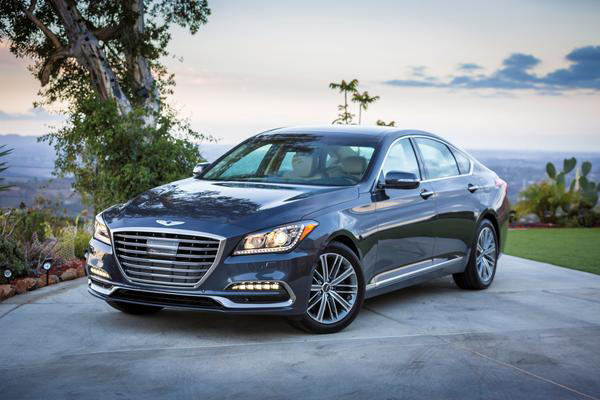![Hyundai Genesis G80 [Photo provided by Hyundai Motor]](https://file.mk.co.kr/meet/neds/2023/05/image_readtop_2023_399031_16849768225483539.jpg)
Hyundai Genesis G80 [Photo provided by Hyundai Motor]
More South Korean consumers are considering buying imported cars as the price gap with domestic cars has narrowed with domestically priced vehicles with higher prices and improved features, although the high maintenance fee remains a burden.
Many consumers believe that the price of imported cars, after the big discounts of promotions, is not much different from that of domestic cars.
For consumer durables such as vehicles, the maintenance cost is an important factor in addition to the initial purchase cost. Consumers in developed markets such as the US, Europe and Japan focus on the total cost of ownership (TCO) when purchasing a vehicle, while those in Korea consider the purchase cost.
TCO includes all the costs of operating a vehicle, such as fuel costs, insurance premiums and car taxes, in addition to the purchase cost.
Maeil Business Newspaper on Wednesday selected five models of semi-large sedans and compared the TCO to analyze the overall cost of buying domestic and import cars.
The models were Hyundai Motor Grandeur 2.5 gasoline Calligraphy, Genesis G80 2.5T gasoline 2WD 19 inches, Audi A6 45 TFSI, BMW 520i Luxury and Mercedes-Benz E250 Avantgarde.
According to a TCO analysis that assumed buying a new car and selling it after 10 years, the TCO of domestic cars was 70-80 million won ($52,990 ~ $60,560), while that of imported cars exceeded 100 million won.
By model, Grandeur cost 73.35 million won, G80 84.57 million won, A6 117.02 million won, BMW 5 Series 106.97 million won and Benz E-Class 110.67 million won.
The analysis shows that the cost difference between buying a 5 Series and a G80 is 11.8 million won, but it doubles to 22.4 million won based on the 10-year TCO.
The annual maintenance cost for each model, including fuel costs, maintenance and repair costs, insurance fees and car taxes, is 3.65 million won for Grandeur, 3.94 million won won for the G80, 5.19 million won for the A6, 4.98 million won for the 5 Series and 5.05 million won. million won for the E-Class.
![Audi A6 [Photo provided by Audi]](https://file.mk.co.kr/meet/neds/2023/05/image_readmed_2023_399031_16849768225483540.jpg)
Audi A6 [Photo provided by Audi]
The cost of fuel assumes regular fuel consumption and mileage of 10,000 kilometers per year. The price of regular oil for the calculation was 1,697.2 won per liter, the average price in Seoul for the third week of May.
The maintenance and repair cost only reflected minimal maintenance cost, such as engine oil, air filter, brake pad and tire changes.
Meanwhile, the insurance premium was calculated assuming a new underwriting of Samsung Fire & Marine Insurance Co.’s direct auto insurance policy. for a 31-year-old man who insures only one driver, 200 million won for the property, including own damages. vehicle and emergency services.
The insurance premium for imported cars is double that of domestic cars of the same level. The annual insurance cost for Grandeur is 910,000 won, G80 940,000 won, A6 1.88 million won, 5 Series 1.84 million won and E-Class 1.6 million won.
In the case of car taxes, the comparison makes little sense as they are charged based on engine displacement.
Import cars can weigh on owners once the five-year quality warranty period expires. The analysis shows that the prices of auto parts and labor costs of imported cars are two to three times higher than those of domestic cars.
Import cars are entitled to free repair and maintenance during the quality warranty period, but the cost varies after the warranty period ends. If a problem arises with the transmission, for example, domestic cars cost 2-3 million won for replacement, while import cars can cost more than 10 million won.
Industry experts point out that many imported cars that are five years old or older are put up for sale on the used car market to avoid unexpected costs after the warranty period.
According to Korea’s leading used car retailer K Car Co., the average residual value rate, or the price of a used car compared to that of a new car, for the A6 was 41% the fifth year and 15% in the 10th year. Residual value rates for the 5 Series and E-Class were 51 percent and 52 percent, respectively, in the fifth year and 23 percent and 21 percent each in the 10th year.
This suggests that the price of a 10-year-old G80 with a residual value rate of 28 percent is higher than that of an imported car of the same level.
[ⓒ Pulse by Maeil Business News Korea & mk.co.kr, All rights reserved]


